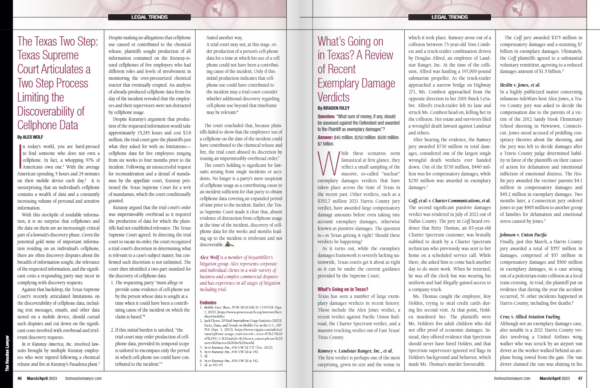With a deep understanding of your business alongside clear and honest communication, we help clients face challenges fearlessly.
Contact us today to learn more about our services and how we can help drive solutions.
Understanding the Implications of the New Law Creating a Texas Business Court System
June 19, 2023
A specialized business court in the Lone Star State is slated to take effect on September 1, 2024 now that Governor Greg Abbot has signed House Bill 19 (H.B. 19) into law. Here are the potential implications H.B. 19 holds for the Texas business landscape.
Signed on June 9, H.B. 19 is primarily designed to manage disputes involving transactions over $5 million, as well as situations where a company owner is accused of negligence. It is expected that the creation of a business-specific court would streamline the dispute resolution process, saving resources for businesses and potentially enhancing Texas’s reputation as a business-friendly state.
The bill authorizes the governor to appoint judges to the court, causing concerns among critics about potential conflicts of interest, the appearance of impropriety and the departure from the long-standing tradition of Texas judges being elected by voters.
Despite these concerns, there is a belief among some that H.B. 19 could relieve some pressure from the state’s court system. By providing a specialized forum for business-to-business litigation, businesses could benefit from expert judges with extensive backgrounds in commercial law.
One of the key amendments introduced by Sen. Bryan Hughes subdivides cases into business governance disputes, commercial disputes, and equitable relief. This differentiation can ensure that varying complexities of cases are properly managed, offering a more tailored approach to dispute resolution. Business courts are a practice that currently exists in nearly 30 states.
The passage of H.B. 19 could mark a significant shift in the Texas legal landscape. For example, the change could impact how Texas business contracts are written, and companies may need to update their contracts to reflect the new system.
The new court will not hear all business cases. For example, personal injury cases would not be handled, and neither would claims against government entities, probate or family law cases, or those having to do with the Deceptive Trade Practices Act (DTPA).
Originally, the minimum value for a case to be heard by the court was $10 million. However, an amendment introduced by Senator Bryan Hughes proposed to reduce this threshold to $5 million for certain types of cases, such as those involving corporate governance disputes and shareholder actions. This means more businesses could potentially take advantage of this specialized court system. However, for commercial disputes arising from qualified transactions, the original $10 million threshold still applies, with the exception that it doesn’t include any loans or credit extensions made by financial institutions.
The new law calls for the creation of the initial five courts in the largest judicial regions of the state by September 1, 2024, with the funding for the remaining courts in the other six districts to be determined by future legislatures. The initial courts are planned to be established in Austin, Dallas, Fort Worth, Houston, and San Antonio.
Sources:
Castle, Lauren. “Texas Business Court Bill Heading To Governor’s Desk.” Law360, May 12, 2023
Farnie, Madison. “Texas may establish new court for businesses.” Houston Business Journal, May 16, 2023
“History: HB 19”. Texas Legislature Online
JD Supra. (2023, May 18). “Texas Legislature Passes Law Creating Business Courts”.



